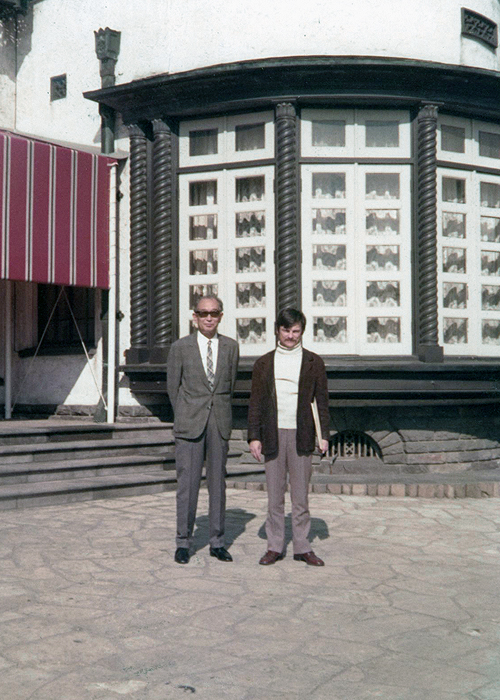
Dailies is a round-up of essential film writing, news bits, and other highlights from across the Internet. If you’d like to submit a piece for consideration, get in touch with us in the comments below or on Twitter at @TheFilmStage.
 Akira Kurosawa on watching Solaris with Andrei Tarkovsky:
Akira Kurosawa on watching Solaris with Andrei Tarkovsky:
“Tarkovsky was sitting in the corner of the screening room watching the film with me, but he got up as soon as the film was over and looked at me with a shy smile. I said to him, “It’s very good. It’s a frightening movie.” He seemed embarrassed but smiled happily.
Then the two of us went to a film union restaurant and toasted with vodka. Tarkovsky, who does not usually drink, got completely drunk and cut off the speakers at the restaurant, then began singing the theme of Seven Samurai at the top of his voice. I joined in, eager to keep up.
At that moment, I was very happy to be on Earth.”
The Academy has bought the Aries 1B Trans-Lunar Space Shuttle from 2001 for $344,000 in an auction, LA Times report.
Watch a conversation between President Obama and The Wire creator David Simon:
Grantland‘s Mark Harris on the indie horror boom and what frightens us:
On Monday afternoon, I saw the new horror movie It Follows. This necessitated a trip to an actual multiplex rather than to my living room couch, since although the film had been destined for VOD — which has become the default home for most indie horror — its distributor, the Weinstein Company division Radius-TWC, suddenly feared it was leaving millions on the table after the film had an unexpectedly strong four-screen debut on March 13; it is now scheduled to open on 1,200 screens on Friday. (VOD, temporarily reclaiming its reputation as the place you go when you can’t make real money, will have to wait.)
Watch Keith Stanfield and Shea Whigham in the music video for Run the Jewels‘ Close Your Eyes:
At The Talkhouse, The Comedy‘s Rick Alverson on White God:
The moral center at the heart of a fable has always left me uneasy, for much the same reason metaphors do. I find myself skeptical of the lesson, distrustful of what feels like misdirection, confused about who is doing the telling and how it is being told. I consider these impulses valid, even cautionary. Allegories elevate content above form by necessitating that we look through the form, by using it as a conduit rather than trusting what we are seeing and hearing. They are, of course, a necessary and useful convention of literature, as they shape what we see and hear internally. There is something to be gained by recognizing that images in one’s head are elastic. Words are referential; they point somewhere, at something. But what of the images and sounds that are not our creation or the creation of the act of reading? What of movies? Are images and ideas elevated by allegory or are they reduced?
Introducing Blade Runner Reality, an Instagram account which attempts to capture the feel of the film in real-life (via i09):
Watch a video essay on the boulder scene in Raiders of the Lost Ark:
Badass Digest‘s Devin Faraci questions why the thought of Furious 7 winning Best Picture is so funny:
The other day Vin Diesel got to Vin Dieseling and he said that Furious 7 was going to win Best Picture at the Oscars next year. Everybody – me included! – laughed and loved him for it. And then I got to thinking: why is the idea of Furious 7 winning Best Picture so inherently funny? Besides the obvious real world aspects, of course, by which I mean we all know how the Academy works and what kinds of movies get nominated for Best Picture and that movies like Furious 7 only get nominated for technical stuff… if even that.
